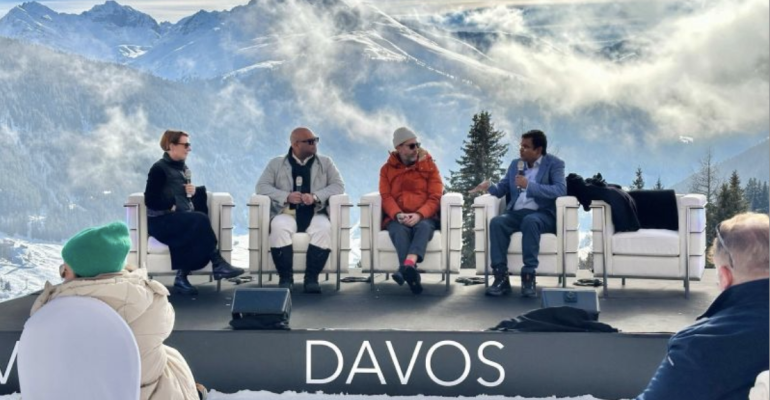More than 3,000 political leaders, business executives, economists, celebrities, and journalists came to Davos, Switzerland, from January 15 to 19 for the 2024 World Economic Forum, at a time when international conflict and emerging technologies are top of mind among high-level decision-makers.
The WEF was newsworthy for a few reasons. First, several technology executives made bold comments about artificial intelligence. Satya Nadella, CEO of Microsoft, said in a main-stage session that guardrails for generative A.I. must be developed by industry leaders as well as governments. Further, Salesforce CEO Marc Benioff noted that the technology industry is working furiously to make sure artificial intelligence is developed safely enough to ensure the world avoids a “Hiroshima moment,” according to this CNBC article.
“We don’t want something to go really wrong,” Benioff said. “That’s why we all went to the [A.I. Safety Summit in the United Kingdom] late last year, and that’s why we’re talking about trust” at Davos. In fact, the theme of the entire conference is “Rebuilding Trust.”
Concerns have mounted over the uses and potential information biases of artificial intelligence. At the November 2023 A.I. Safety Summit that Benioff referenced, dozens of national leaders signed an agreement committing to create frameworks and standards around how to develop A.I. safely.
 Several other technology executives attending WEF at the Davos Congress Centre (in photo) also made frank remarks about the development of A.I., including Sam Altman, CEO of OpenAI. Altman said that he thinks artificial general intelligence—a form of A.I. comparable to humans—is likely to come soon, but that it won’t be as significant for replacing employees as many economists fear. “It is this incredible tool for productivity...more than I expected,” he said. “It magnifies what humans do, and it lets people do their jobs better [because] it does parts of jobs.”
Several other technology executives attending WEF at the Davos Congress Centre (in photo) also made frank remarks about the development of A.I., including Sam Altman, CEO of OpenAI. Altman said that he thinks artificial general intelligence—a form of A.I. comparable to humans—is likely to come soon, but that it won’t be as significant for replacing employees as many economists fear. “It is this incredible tool for productivity...more than I expected,” he said. “It magnifies what humans do, and it lets people do their jobs better [because] it does parts of jobs.”
In the meetings industry, A.I. has been harnessed through products such as Spark, created by the Professional Convention Management Association and online-event management firm Gevme. It can help planners with many components of planning, executing, and measuring the impact of business events.
Altman added that the A.I. products that are coming soon “are going to make a lot of people uncomfortable" due to "quite a lot of individual customization" that can result in different answers based on values or user location. This makes generative A.I. open to delivering biased results.
A.I.’s Downside Was Debated Outside
Another reason the meeting was newsworthy: Besides the general sessions and breakouts held inside the Davos Congress Centre, a few sessions took place outdoors—including one conducted atop a mountain in the Alps just outside the village of Davos. (See image at top)
In that session, Michael Treff, CEO of technology-focused creative agency Code and Theory Network, said that the present imperfections of A.I. must be considered as businesspeople use the tool for their work—a relevant point for those who coordinate meetings and events in particular. “Unless bias is considered and eliminated throughout all of the layers of A.I.—the inputs, the decision engine, and the expressions generated—then these biases will only be compounded” as businesspeople continue to use the technology.
Lastly, to provide attendees with a summary of key themes and points from conference sessions, planners of the World Economic Forum hired a graphic artist to create as mural on the wall of the prefunction space (see photo). However, generative A.I. is now capable of creating similarly creative content summaries.






